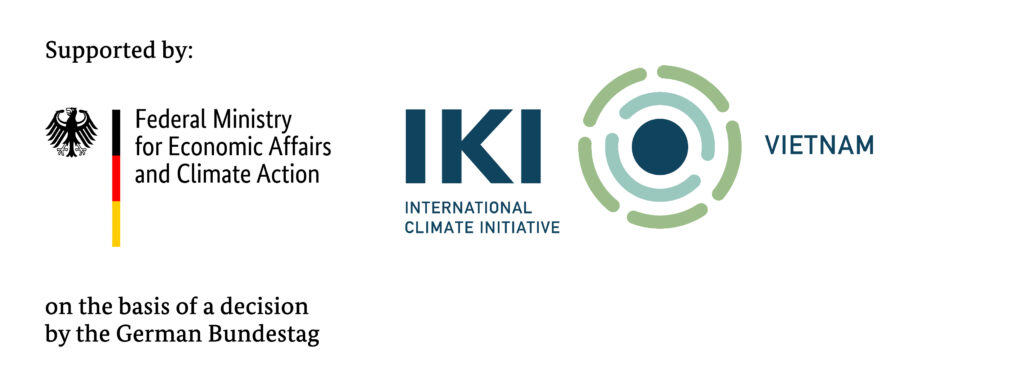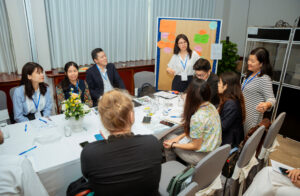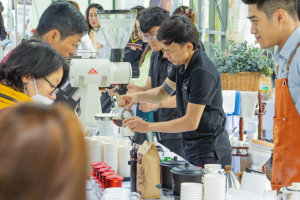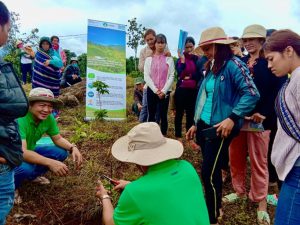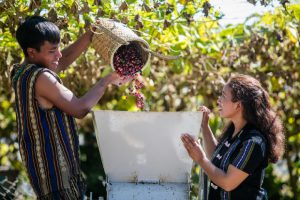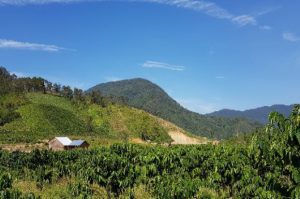Marginalisation of Ethnic Minorities and Deforestation in the Central Highlands of Vietnam
In Vietnam’s Central Highlands, the K’Ho ethnic minority people have cared for the forests for generations, practicing nomadic upland cultivation—a traditional method involving field rotations within a forest in order to sustainably manage natural resources.
But as they are relocated from forests to residential areas, admid the turbulence of climate change, they face a completely new set of challenges known as “fixed” farming. Fixed farming involves permanently allocating land for cultivation. Without sustainable practices, the shift to intensive farming can reduce the opportunities for soil to rest or regenerate naturally.
This expansion of such coffee production is a major catalyst for land-use change, resulting in the loss and degradation of forested areas.
Even more alarming, the grip of intensive farming ravages the soil, unleashing a torrent of erosion and stripping away vital nutrients. Not to mention how the heavy use of chemicals from these farms poisons rivers, eventually jeopardising the local food security and putting the local economy at risk.
All of which pose additional challenges for the K’Ho community, who has been unfamiliar with new practices that fit the demand of global coffee market. In order to be resilient to the price fluctuations in such a demanding market, coffee farmers must be able to diversify their livelihoods and income sources while practicing high-quality coffee production.
Those who fail to follow new sustainable practices might face inequalities in the field, which can extend the damage to equitable forest restoration efforts.
The Need for Equitable Participation and Influence in Restoration Interventions
Inequalities in forest and landscape restoration efforts can exacerbate social disparities and hinder effective collaboration to prevent deforestation and forest degradation which can have repercussions on the health of our ecology and communities.
Not only that, marginalised communities risk losing cultural heritage and traditional knowledge due to exclusion from decision-making processes in forest restoration initiatives.
Addressing these inequalities requires inclusive approaches that prioritize the voices and needs of marginalised communities, ensuring equitable access to resources, decision-making processes, and opportunities for meaningful and incentivised engagement in these initiatives.
Within this context, Café-REDD, an SNV project funded by the German Federal Ministry for Environment, Nature Conservation and Nuclear Safety (BMUV), following the governmental policies on new rural development and forestry, is collaborating with the K’Ho to revive the forest landscape.
To achieve this, Café-REDD involves diverse stakeholders, ensuring marginalized groups aren’t passive beneficiaries but active stakeholders throughout the design and implementation process of the project.
By recognizing and addressing their unique needs, including gender considerations, Café-REDD is seizing opportunities to promote social inclusion and avoid perpetuating inequalities by employing an intersectional approach.
 Figure 1. Different direct and indirect mechanisms to ensure social inclusion in forest and landscape initiatives.
Figure 1. Different direct and indirect mechanisms to ensure social inclusion in forest and landscape initiatives.
Case Study: K’Ho Female Farmers Diversifying Livelihoods with Traditional Wisdom
Why does it matter to involve K’Ho women in restoration efforts?
In K’Ho society, gender roles are closely linked to their unique cultural practices. Their administrative setup, called bòn, shows a system where women have a lot of power and influence. In families, women are highly respected and have important roles in making decisions about big events like weddings and funerals.
The involvement of K’Ho women in decision-making for their families and community is crucial for Café-REDD, as it guarantees that restoration efforts involving active participation of women are in harmony with the needs and priorities of their community.
To promote income-generating opportunities among these targeted communities, one of Café-REDD’s achievements is to support the establishment of 10 off-forest farm livelihood models.
A successful example of this case is how K’Ho women at Café-REDD are leading and reviving an alternative livelihood: making straw wine.
Finding the Suitable Alternative Income as an Indirect Approach to Prevent Deforestation
Straw wine, a traditional beverage crafted by the K’Ho community, is a cultural emblem passed down through generations, often led by K’Ho elderly women. Made from fermented rice, it undergoes an intricate production process where the ingredients are wrapped in straw and left to ferment. Traditionally used for ceremonial occasions and social gatherings, straw wine holds deep cultural significance and serves as a testament to the community’s connection to the land and its resources.
Yet, recent years have witnessed the erosion of making straw wine culture due to socioeconomic changes and shifts in livelihood.
Café-REDD recognizes the potential to encourage the sustainable involvement of the K’Ho community in forest and landscape restoration efforts by helping them develop alternative sources of income, one of which is making straw wine.
The project has brought together a group of diverse K’Ho members, including elderly individuals who have retained the traditional knowledge of straw wine-making and younger women who are enthusiastic about learning and adapting to modern demands. With initial funding, the group acquired essential ingredients and containers, while also receiving training in marketing and accessing markets to expand their customer base.
 Figure 2. K’Ho straw-wine making group at Café-REDD.
Figure 2. K’Ho straw-wine making group at Café-REDD.
Although the K’Ho community upholds a matriarchal structure, it’s vital to acknowledge that women still bear a significant portion of the labour division, which may amplify the burden of pursuing alternative sources of income.
To address this concern, the project meticulously consulted with K’Ho members to understand their needs, integrating their insights, experiences, and knowledge into the initiative. According to feedback from K’Ho communities involved with Café-REDD, the process of making straw wine does not overly encroach on their farming and household responsibilities.
The fermentation process requires only 2-3 days per month, with the wine ready for sale after 6 months, thus fitting seamlessly into their schedules. Women primarily oversee the wine-making recipe, while men assist in sourcing straws and preparing additional ingredients, ensuring a collaborative approach that fair work division within the community.
“Before, we only sold our straw wine within our village, but now we’re reaching tourist destinations, and orders are coming in from different cities. This extra income benefits our households, but what’s truly special is how it’s brought us closer together, especially among the older female members and the rest of the community”, said R’ Ong K’ Chuong, the female head of the straw wine making group.
Next Steps to Improve Equitable Opportunities for Marginalised Groups
It takes a collective effort from various stakeholders to ensure that our forest and landscape restoration initiatives prioritise equity and amplify the voices of marginalised communities. In order to effectively address the needs of communities and genders at project sites, it is crucial to involve a diverse range of actors including governments, programme developers, researchers, and gender specialists in tailoring solutions and interventions.
In line with the new gender strategy of IKI, our projects aim for a more transformative approach towards gender to promote fairness and equality for all individuals, regardless of their gender identity or expression.
If you want to know more about the project, please visit: Cooperation from PPPs against deforestation in Vietnam | Internationale Klimaschutzinitiative (IKI) (international-climate-initiative.com)
